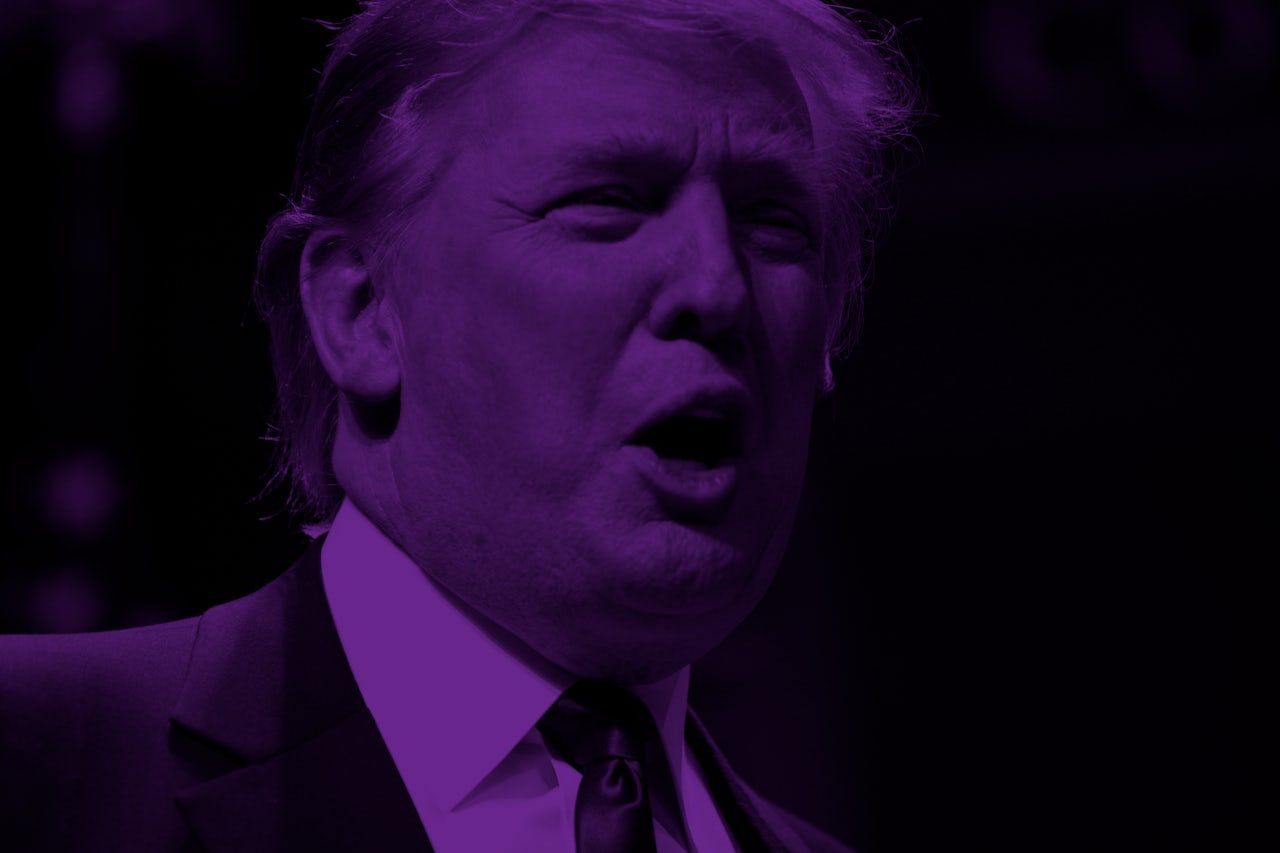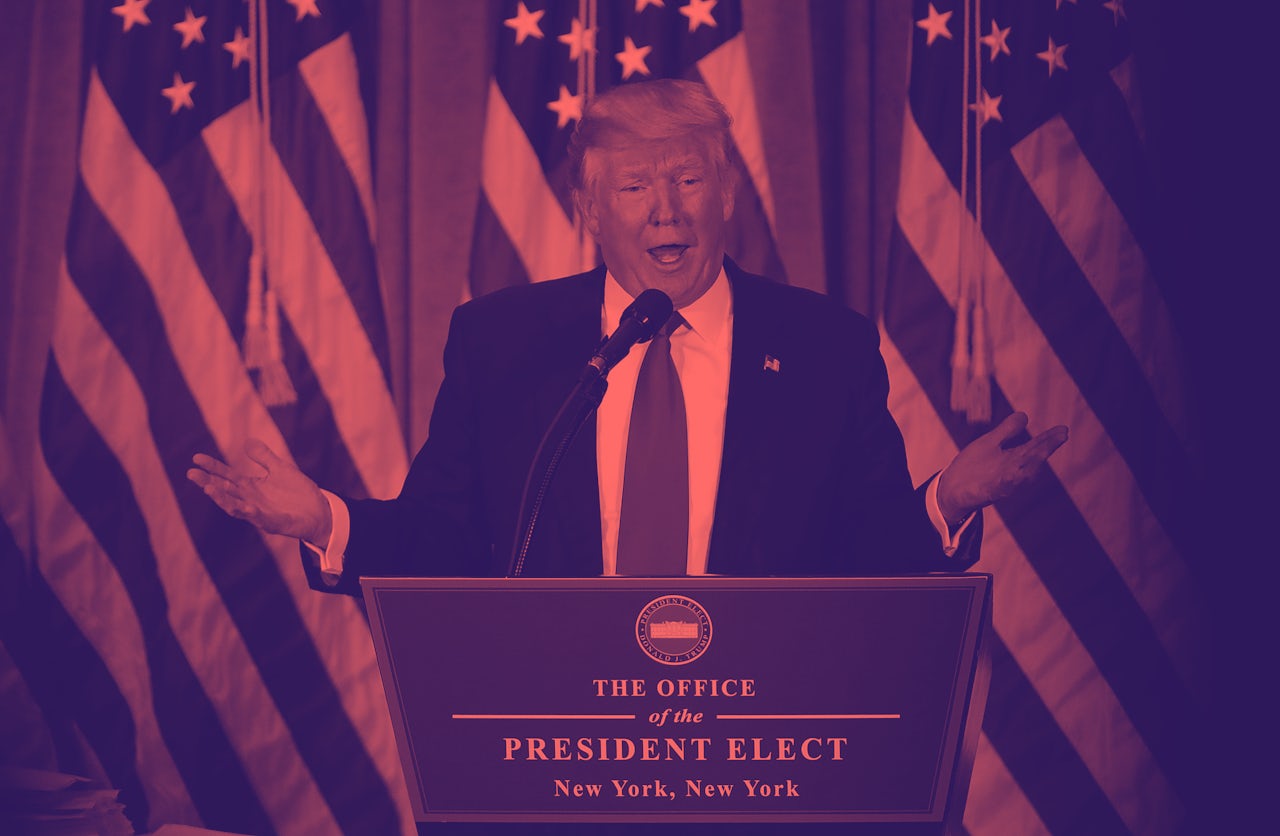On Wednesday, reporters packed into a room at Trump Tower in New York for President-elect Donald Trump’s first press conference in seven months, and his first since winning the presidential election. Back in December, Trump promised to hold a press conference in order to outline the ways in which he would divest himself from his numerous conflicts of interest as president. Without explanation, he postponed the event for nearly a month. Like most events involving Trump, there was already a healthy dose of drama leading into the conference. Just hours earlier, BuzzFeed published a report that senior intelligence officials brought to President Obama, as well as President-elect Trump, about Russia’s alleged communications with the Trump campaign. In the document were allegations that Russian officials were blackmailing Trump with video of him present in a hotel room where prostitutes were urinating on one another. When asked about increasing concerns that Trump has been compromised by the Russians, Trump responded, “Do you honestly believe that Hillary would be tougher on Putin than me?” ostensibly forgetting that the campaign was over.
The prevailing logic around Trump from many of his supporters was that his “antics” were merely an affectation put on for the campaign. There was no evidence that any sort of sudden readjustment would take place after he took office — and plenty of evidence to the contrary — but it remained a nominally comforting thought. Perhaps we’d end up with a less evangelical version of George W. Bush instead of a cartoon villain who ends press conferences with a catchphrase about firing people. Wednesday’s fiasco put any of these thoughts to rest. Toward the end of the press conference, Trump refused to answer questions from CNN, which broke the story about the intelligence dossier but fell short of publishing the full allegations. “Your organization is terrible,” Trump told CNN’s senior White House correspondent, Jim Acosta, before declaring him “fake news.”
Adding to the overall sense that this was a press conference for a UFC fight was Trump’s inexplicable decision to bring out a stack of unlabeled manila folders, filled with what appeared to be blank pieces of paper, in order to illustrate the elaborate process by which he was removing himself from his various conflicts of interests. Trump’s business will be handed over to a trust run by his two sons, and he will still maintain ownership of his global business empire. The president-elect’s team would not allow any reporters to see what was inside of the several stacks of papers. The methods laid out by Trump’s lawyer for this divestment were later called “meaningless” by senior ethics officials.
Update: The Trump team did not allow the press to see the contents of the folders. Photo by Noah Gray/CNN pic.twitter.com/zKc9fv3Sba
— CNN Politics (@CNNPolitics) January 11, 2017
With Trump, the high-minded veneer of America’s political system — its levers pulled by the everyday citizen motivated only by a desire for an honest living — has vanished. In its place is the deeply cynical view that the American public has no business making decisions or being informed about decisions made on their behalf. In choosing Donald Trump, nearly half of the American electorate voted for a CEO, not a president. Trump’s communications to the public don’t serve any democratic purpose but a managerial one. His job as president will be to appear on television and serve up the same entertaining yet intellectually vacant content that has reliably captured the attention of millions of viewers for years. This makes countering him a particularly difficult task, evidenced by the scores of journalists shooting themselves in the foot trying to reason with the man.
The world of garbage TV from which Trump hails does provide one reliable method for holding people accountable: polygraph tests.
A favorite device of shows like Jerry Springer and Maury, the televised polygraph test emerged as a precursor to the early 2000s wave of reality television that would eventually give us Donald Trump. The idea is simple: A suspicious spouse or partner visits a talk show to find some real answers about what is going on in their significant other’s life. Another version of this device is the paternity test, which brought us the memorable, albeit deeply racialized, image of men dancing in the face of not having to be responsible for a child. “You are not the father,” was a meme spread through analog television sets. Similarly, the lie-detector episodes of The Jeremy Kyle Show, a modern rendition of the ’90s daytime talk show, are made into wildly popular compilations on YouTube.
In choosing Donald Trump, nearly half of the American electorate voted for a CEO, not a president.
In The Truth Machine: A Social History of the Lie Detector, author Geoffrey C. Bunn describes how the lie-detector test became the perfect device in pop culture, as it viscerally illustrates the very non-physical act of lying. He describes a pernicious sort of rejection of science involved in the sensationalized results of polygraph tests in pop culture, from O.J. Simpson to Anita Hill. Plenty of people have cheated polygraphs, and the science behind them remains rather murky. When the polygraph was developed in 1921, it was designed using methods of interrogation, not science. But it remains a popular device on television precisely for its simplicity, and perhaps a simplistic approach is best for the world we currently find ourselves living in. One can’t deny that the election of Donald Trump as the president of the United States changes the character of the country in a deep and recognizable way. Those hoping to tear down the president with “fearless journalism” or moral superiority will likely learn the lesson of Nov. 8 multiple times over. Combating a President Trump means taking him down where he lives.
During the campaign, Trump rather effectively used his medical records as a distraction from his wholly unprecedented refusal to release his tax returns. He appeared on the popular fake science show Dr. Oz to talk with Dr. Mehmet Oz, whose on-air suggestions have garnered significant pushback from the medical community for their lack of grounding in science. The two discussed benign subjects like general fitness and the fact that were his records embarrassing, he would hide them. The move was a brilliant play by Trump whose base fits perfectly in the Dr. Oz show demographic. The battle to hold Trump accountable, to his mainstream supporters, could live on such programs, and maybe that’s not a bad thing. If Maury Povich or Jerry Springer challenged Trump to a lie-detector test — the most epic “you are not the father��� moment ever televised — maybe America would finally start paying attention.

